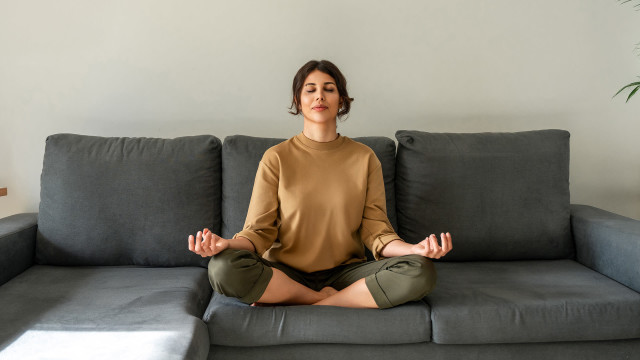3 Virtues That Benefit Humankind

There are three qualities I believe we should all cultivate, for the benefit of ourselves, and everyone we come into contact with; being humble, contented, and grateful.
Setting Pride Aside: Humility
I personally feel more at ease in the company of humble people. They do not waste time bragging about what they have, who they are, or where they have been. They play down their achievements and are more attentive to others’ needs. Their ability to remain open-minded means they will most likely continue to learn throughout thier lives.
The opposite of this is true for proud and conceited people. It is a challenge for me to spend much time with someone who boasts. They are only interested in selling themselves and seem to have no interest in who you are or what you think or know. I have always found people with pride to also have the biggest egos — and usually the biggest mouths to go with them.
There are many causes of pride, but the two most important ones are dualistic thinking and an inflated sense of self.
When people think in a dualistic way, it can stir up pride because they start thinking, “I am good and others are bad,” “I am handsome and they are ugly,” or “I am intelligent and they are stupid.”
This type of thinking may cause us to start to emphasize the sense of self, which leads us to become attached to who we think we are. Both of these lead to pride and conceit. In the Sutta Nipata, Gautama Buddha states:
By being alert and attentive, he begins to let go of cravings as they arise. But whatever he begins to accomplish, he should beware of inner pride. He must avoid thinking of himself as better than another, or worse or equal, for that is all comparison and emphasizes the self.
It is clear that humility is a trait we have to work at, or we could find ourselves getting wrapped up in pride. The pride I am talking about is our overinflated sense of self. It is not the pride we have for our children, loved ones, and so on, which stems from love and compassion — this overinflated sense of pride stems from our ego.
Meditation Practice for Humility
In a meditation session, look at pride and humility. Which one do you lean toward? Think back over the past few days and see what situations stir up pride in you, and which ones make you humble. Only when we become focused on these situations are we able to make changes in ourselves.
Need vs. Greed: Contentment
To experience contentedness, it's important to differentiate between need and greed. I think we can satisfy our need, but we will never satisfy our greed.
We need food, clothes, work, money, and human contact. These bring us security and are things we can satisfy to some degree. We want the latest smartphone, expensive clothes, big cars, huge houses, exotic holidays — in short, we want to not only fit in with society, but also stand out.
If we blindly follow our desire to want more, we will never be content. Just think, if you could buy happiness, all the wealthy people in the world would be totally content, but they are not. They are just like the rest of us, always searching for something to make them happier.
The desire to want more brings us anxiety, worry, and stress. When we cannot obtain the thing of our desire, we become sad and angry; disappointment and despair set in. There are two main reasons for this type of suffering. One is our inability to be content with the present moment. The other is when we make our happiness dependent on someone or something outside us. Our discontentment leads us to have more desires in the hope of escaping this type of suffering.
A note of caution: We shouldn’t take contentment to mean we don’t have to put in the effort to better ourselves. We just have to find our level of contentment, and once we do, it will be better than any wealth or material belongings.
As Gautama Buddha says in the Dhammapada, verse 203, “…contentment is the greatest wealth.”
Meditation Practice for Contentment
In a meditation session, look at the following questions:
• Am I content?
• Do I have enough to satisfy my needs?
• Do I chase after happiness in material things?
• Do new things bring me happiness?
• How long does it last?
Give all these points a lot of thought.
Everything Is Interconnected: Gratitude
Gratitude means to be thankful for, and to remember, the help others have given us. We should also try our best to pay back any help we have received if and when the person who has helped us needs it.
In the Dullabha Sutta, it states:
These two people are hard to find in the world. Which two? The one who is first to do a kindness, and the one who is grateful for a kindness done and feels obligated to repay it. These two people are hard to find in the world.
Lately, it seems that people have very short memories where being grateful is concerned. Gratitude is a virtue we should do our best to cultivate.
This is only one part of gratitude as far as Buddhism is concerned. The Pali word katannuta has been translated as “gratitude,” but this doesn’t quite cover it. It literally means that you know what someone has done for your benefit. So, instead of it being an emotional thing as gratitude is usually seen to be — for example, we say things like, “I feel grateful” — the literal meaning makes it more intellectual.
This translation seems to involve an element of knowledge.
This is an important point because it takes in the interconnectedness of everything. If we just sit down and eat our dinner without being aware of what we are eating, who planted and harvested it, who packaged and delivered it, we will not be fully grateful. Being grateful is connected with an awareness of the world around us, how it works, and who is doing what to benefit us.
Meditation Practice for Gratitude
In a meditation session, think about your last meal and follow the process back from your plate to the seed in the ground. Think about all the people involved in the process. It could be a fairly long list. We should be grateful to all of these people because they have benefited us by providing food that we can eat.
It isn’t always easy to set pride aside, focus only on what you truly need, or recognize how everything is interconnected, but it’s worth it to try. Allow yourself the room to learn from past ways of thinking that have kept you separate from the benefits of these essential qualities of humility, contentedness, and gratitude. As you cultivate these virtues, you’ll find you’re giving a gift not only to yourself, but to the world around you.
Try this class, Enjoy Each Day, with meditation teacher Vishvapani Blomfield, to experience how meditation can help you find contentment in your life.
Header photo: Mireya Acierto/The Image Bank/Getty Images
Key Takeaways:
- Gratitude connects us all.
- Pride should come from love, not ego.
- Contentment is personal.






